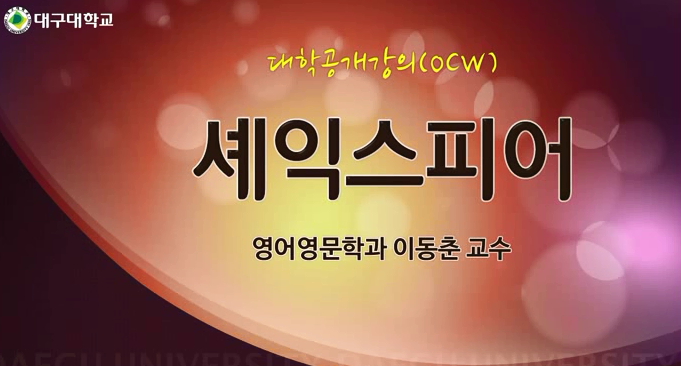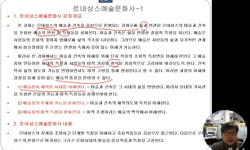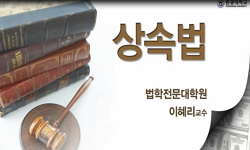The present paper aims at studying the gender and role reversal patterns of women from the Shakespeare’s plays feminist and liberal humanist perspectives. This study assumes feminism as an offshoot of the liberal humanism, which posits a subject des...
http://chineseinput.net/에서 pinyin(병음)방식으로 중국어를 변환할 수 있습니다.
변환된 중국어를 복사하여 사용하시면 됩니다.
- 中文 을 입력하시려면 zhongwen을 입력하시고 space를누르시면됩니다.
- 北京 을 입력하시려면 beijing을 입력하시고 space를 누르시면 됩니다.
https://www.riss.kr/link?id=A103298560
- 저자
- 발행기관
- 학술지명
- 권호사항
-
발행연도
2017
-
작성언어
Korean
-
주제어
셰익스피어 ; 르네상스 ; 여성의 목소리 ; 가부장제 ; 여성성 ; 권력 ; 상속 ; Shakespeare ; Renaissance ; voice of woman ; patriarchal society ; femininity ; power ; inheritance
-
등재정보
KCI등재
-
자료형태
학술저널
- 발행기관 URL
-
수록면
171-197(27쪽)
-
KCI 피인용횟수
1
- DOI식별코드
- 제공처
- 소장기관
-
0
상세조회 -
0
다운로드
부가정보
다국어 초록 (Multilingual Abstract)
The present paper aims at studying the gender and role reversal patterns of women from the Shakespeare’s plays feminist and liberal humanist perspectives. This study assumes feminism as an offshoot of the liberal humanism, which posits a subject desiring to be autonomous, to be not only just free, but also to be the origin and guarantee of its own identity, the source of its own being, meaning and agency. One might say that liberals are in general committed to an ontology of the individual- a metaphysical conception of the individual as an irreducible entity endowed with an existence that can be taken to transcend the limitations of any particular culture or society.
King Lear is very much a political play, concerned with power and government in the royal family. In the patriarchal society which defines power and politics as “masculine” privileges, Goneril and Regan strive to hold regal power committing “masculine” crimes. In the process they strengthen and maintain the patriarchal systems of men. These threatening women are characterized as monsters and devils by their contemporary misogynist discourses, and subsequently they are outcast. However, in the process of their destruction, they put into question the validity and legitimacy of the patriarchal system.
Shakespeare dramatizes complex women as individuals of love, sexual desire, political ambition, and life-care. Goneril, Regan, try their best to achieve self-fulfillment and their agency as human beings in spite of the limits of their patriarchal system. They deny their socially and culturally given roles of docile lover, dependant daughter, and servile wife. They show the developing processes of their true self-fashioning even though they are contained in the patriarchal system in fine.
참고문헌 (Reference)
1 박우수, "셰익스피어와 바다" HUEBOOKs 2016
2 Blaha, Susan S, "“You Should Be Women”, Constructions of Female Sexuality in Shakespeare’s Tragedies" U of Nortre Dame 1995
3 Gates, Daniel, "‘The Body of This Death’: Despair and Kingship in the English Renaissance" U of Notre Dame 2003
4 Woodbridge, Linda, "Women and the English Renaissance: Literature and the Nature of Womankind, 1540-1620" U. of Illinois P 1984
5 Eagleton, Terry, "William Shakespeare" Blackwell 1986
6 Rubin, Gayle, "Toward an Anthropology of Women" Monthly Review P 1975
7 Shakespeare, William, "The Riverside Shakespeare" Houghton Mifflin 1974
8 Adelman. Janet, "Suffocation Mothers: Fantasies of Maternal Origin in Shakespeare’s Plays: Hamlet to The Tempest" Routledge 1992
9 Fernie, Ewan, "Shame in Shakespeare" Routledge 2002
10 Booth, Stephen, "Shakespeare’s Sonnets" Yale UP 1977
1 박우수, "셰익스피어와 바다" HUEBOOKs 2016
2 Blaha, Susan S, "“You Should Be Women”, Constructions of Female Sexuality in Shakespeare’s Tragedies" U of Nortre Dame 1995
3 Gates, Daniel, "‘The Body of This Death’: Despair and Kingship in the English Renaissance" U of Notre Dame 2003
4 Woodbridge, Linda, "Women and the English Renaissance: Literature and the Nature of Womankind, 1540-1620" U. of Illinois P 1984
5 Eagleton, Terry, "William Shakespeare" Blackwell 1986
6 Rubin, Gayle, "Toward an Anthropology of Women" Monthly Review P 1975
7 Shakespeare, William, "The Riverside Shakespeare" Houghton Mifflin 1974
8 Adelman. Janet, "Suffocation Mothers: Fantasies of Maternal Origin in Shakespeare’s Plays: Hamlet to The Tempest" Routledge 1992
9 Fernie, Ewan, "Shame in Shakespeare" Routledge 2002
10 Booth, Stephen, "Shakespeare’s Sonnets" Yale UP 1977
11 French, Marilyn, "Shakespeare’s Division of Experience" Abacus 1975
12 Cohen, Derek, "Shakespeare’s Culture of Violence" Macmillan 1993
13 McKewin, Carole, "Shakespeare Liberata: Shakespeare, the Nature of Women, and the New Feminist Criticism" 10 : 157-164, 1977
14 Moi, Toril, "Sexual/ Textual Politics: Feminist Literary Theory" Routledge 1985
15 Fergusson, Margaret, "Rewriting the Renaissance: The Discourses of Sexual Difference in Early Modern Europe" U of Chicago 1986
16 Tennenhouse, Leonard, "Power on Display: The Politics of Shakespeare’s Genres" Methuen 1986
17 McLuskie, Kathleen, "Political Shakespeare: New Essays in Culture Materialism" Manchester UP 88-108, 1985
18 Zak, Gur, "Petrarch’s Humanism and Care of the Self" Cambridge. UP 2010
19 Brown, Elizabeth Gilliam, "Origins of the Puritan Concept of Despair" Yale U 2010
20 McFarland, Thomas, "On King Lear" Princeton UP 1981
21 Frye, Northrop, "Northrop Frye on Shakespeare" Yale UP 1986
22 Muir, Kenneth, "King Lear" Routledge 1975
23 Tong, Rosenmaire, "Feminist Thought : A Comprehensive Introduction" Westview 1989
24 Levin, Richard, "Feminist Thematics and Shakespearean Tragedy" 103 : 125-138, 1988
25 Kahn, Coppelia, "Excavationg“Those Dim Minoan Region”: Maternal Subtext in Patriarchal Literature" 12 (12): 32-41, 1982
26 Cavell, Stanley, "Disowning Knowledge in Six Plays of Shakespeare" Cambridge UP 1987
27 Heinemann, Margot, "Demystifying the Mystery of State: King Lear and the World Upside Down" 44 : 14-75, 1992
28 Neely, Carol Thomas, "Construction the Subject: Feminist Practice and the New Renaissance Discourse" 18 : 5-18, 1981
동일학술지(권/호) 다른 논문
-
비너스의 무어인 오델로(Othello, the Moor of Venus)
- 한국셰익스피어학회
- 박우수(WooSoo Park)
- 2017
- KCI등재
-
- 한국셰익스피어학회
- 박효춘(Hyo-Chun Park)
- 2017
- KCI등재
-
『코리오레이너스』(Coriolanus): 코리오레이너스의 자아의 제국주의와 볼럼니아의 모성성
- 한국셰익스피어학회
- 윤희억(Hee-Uhk Yoon)
- 2017
- KCI등재
-
- 한국셰익스피어학회
- 이용은(Yongeun Lee)
- 2017
- KCI등재
분석정보
인용정보 인용지수 설명보기
학술지 이력
| 연월일 | 이력구분 | 이력상세 | 등재구분 |
|---|---|---|---|
| 2027 | 평가예정 | 재인증평가 신청대상 (재인증) | |
| 2021-01-01 | 평가 | 등재학술지 유지 (재인증) |  |
| 2018-01-01 | 평가 | 등재학술지 유지 (등재유지) |  |
| 2015-01-01 | 평가 | 등재학술지 유지 (등재유지) |  |
| 2011-01-01 | 평가 | 등재학술지 유지 (등재유지) |  |
| 2009-01-01 | 평가 | 등재학술지 유지 (등재유지) |  |
| 2007-01-01 | 평가 | 등재학술지 유지 (등재유지) |  |
| 2004-01-01 | 평가 | 등재학술지 선정 (등재후보2차) |  |
| 2003-01-01 | 평가 | 등재후보 1차 PASS (등재후보1차) |  |
| 2002-01-01 | 평가 | 등재후보학술지 유지 (등재후보1차) |  |
| 1999-07-01 | 평가 | 등재후보학술지 선정 (신규평가) |  |
학술지 인용정보
| 기준연도 | WOS-KCI 통합IF(2년) | KCIF(2년) | KCIF(3년) |
|---|---|---|---|
| 2016 | 0.12 | 0.12 | 0.14 |
| KCIF(4년) | KCIF(5년) | 중심성지수(3년) | 즉시성지수 |
| 0.12 | 0.11 | 0.561 | 0.03 |





 KCI
KCI DBpia
DBpia







